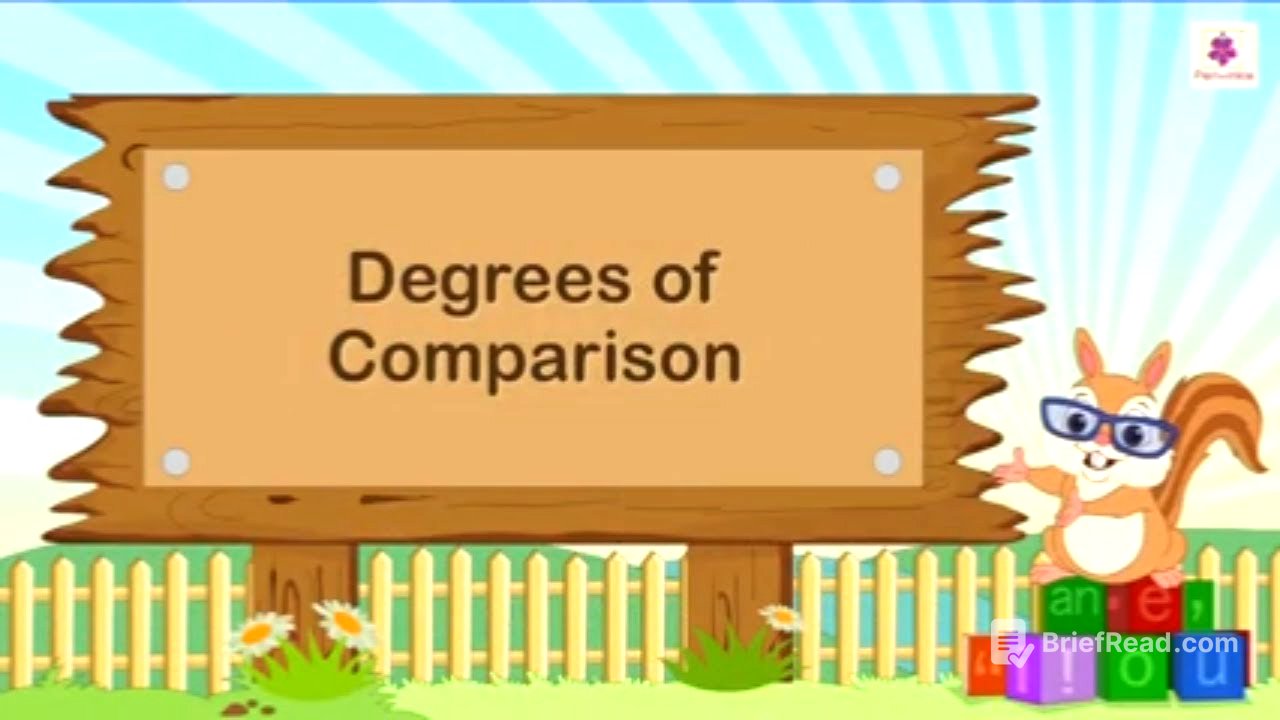TLDR;
This video explains the degrees of comparison for adjectives in English grammar. It covers the positive, comparative, and superlative degrees, detailing how adjectives change form to compare nouns. The video provides rules for forming comparative and superlative adjectives, including adding "er" and "est," using "more" and "most," and dealing with irregular forms. It also explains when to use "than" with the comparative degree and "the" with the superlative degree.
- Adjectives change form to show comparison.
- Three degrees: positive, comparative, superlative.
- Rules for forming comparative and superlative adjectives.
Introduction to Degrees of Comparison [0:08]
An adjective of quality modifies its form when comparing nouns; this change is known as the degree of comparison. There are three degrees of comparison: the positive, comparative, and superlative. The positive degree refers to a single object, person, or place without comparison, like saying "she has a big house." The comparative degree indicates a greater degree of the adjective, comparing two objects, people, or places, such as "her house is bigger than my house." The superlative degree denotes the greatest degree of the adjective and is used to compare more than two objects, people, or places, for example, "his house is the biggest of all."
Rules for Forming Comparative and Superlative Adjectives [1:46]
To create comparative and superlative forms, certain rules apply. For most one or two-syllable words ending in consonants, add "er" and "est," such as "dull," "duller," and "dullest." If the positive form ends in "e," add only "r" and "st," like "large," "larger," and "largest." When the positive form ends in a consonant plus "y," drop the "y" and add "ier" and "iest," for example, "lucky," "luckier," and "luckiest." If a one-syllable word ends in a vowel plus a consonant, double the consonant before adding "er" and "est," such as "red," "redder," and "reddest."
Using "More" and "Most" for Longer Adjectives [3:34]
For longer adjectives, those with two or more syllables, use "more" and "most" before the adjective to form the comparative and superlative degrees. For example, "useful" becomes "more useful" and "most useful."
Irregular Degrees of Comparison [4:04]
Some adjectives have irregular forms for their comparative and superlative degrees, meaning they don't follow the standard rules. For instance, "good" becomes "better" and "best."
Using "Than" and "The" with Comparative and Superlative Degrees [4:28]
Use "than" with the comparative degree and "the" with the superlative degree. For example, "Mohan is shorter than Ricky," and "Falguni is the shortest girl in her class."









